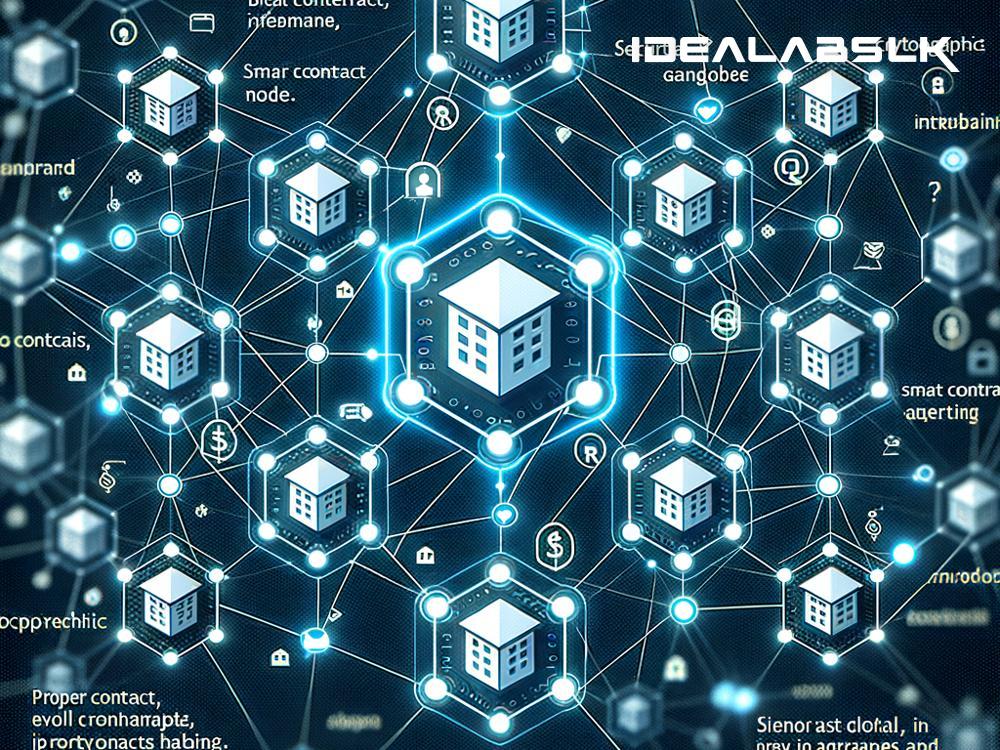Unlocking a New Era in Real Estate: How Blockchain is Revolutionizing Property Transactions with Smart Contracts
In the vast world of buying and selling property, where every transaction feels like a leap through hoops and over hurdles, blockchain technology, accompanied by smart contracts, is stepping up as the game-changer we've all been waiting for. This innovative approach is making waves by transforming how property transactions are conducted, simplifying the process, enhancing efficiency, and offering a layer of security like never before.
But hold on, what exactly is blockchain, and how do smart contracts fit into the picture? Let's break it down into simpler terms.
Think of blockchain as an ultra-secure digital ledger that keeps a record of transactions, much like a traditional ledger. However, unlike a typical record book locked in a drawer, this ledger is transparent and accessible to everyone involved, making it nearly impossible to tamper with. It's a series of blocks (hence the name) linked together using cryptography.
Now, enter smart contracts. These are self-executing contracts where the terms of the agreement between buyer and seller are directly written into lines of code. The contract automatically enforces itself when certain conditions are met. It's like having a robotic middleman that doesn't take breaks and works around the clock to ensure everything goes smoothly.
So, how does this futuristic technology duo make real estate transactions more efficient? Let's dive in.
Simplifying Processes
Normally, buying or selling property involves a mountain of paperwork, numerous phone calls, and a long chain of intermediaries, including real estate agents, lawyers, and banks. Each step is time-consuming and introduces potential for errors and fraud. Blockchain and smart contracts streamline this by putting all the necessary information and transactions into the blockchain, reducing paperwork and the need for multiple intermediaries. This not only speeds things up but also cuts down transaction costs significantly.
Enhancing Security and Transparency
One of the biggest fears in real estate transactions is fraud. However, the transparency and immutability of blockchain technology serve as powerful deterrents against fraudulent activities. Once a transaction is recorded on a blockchain, it cannot be altered or deleted, providing a transparent and unchangeable history of property ownership and transactions. This makes it easier to verify property titles and transaction histories, giving buyers and sellers peace of mind.
Automated Transactions with Smart Contracts
Smart contracts automate and enforce the terms of a real estate transaction without human intervention, minimizing the risk of disputes. For example, a smart contract could automatically transfer property ownership once a buyer transfers funds to a seller, ensuring that both parties fulfill their end of the bargain promptly and efficiently. This level of automation not only speeds up transactions but also reduces the likelihood of errors and fraud.
Easier Payment Processes
Blockchain also introduces the possibility of using cryptocurrencies for payments, streamlining the transfer of funds. Traditional bank transfers and the associated fees can slow down transactions and complicate cross-border deals. Cryptocurrency transactions on the blockchain can be faster, cheaper, and more secure, making the payment process smoother and opening up international markets.
Towards a Brighter Future for Real Estate
The implementation of blockchain and smart contracts in real estate is still in its early stages, but the potential it holds is immense. This technology could democratize access to real estate investment, allowing more people to invest in property with less capital by tokenizing real estate assets. Imagine owning a small percentage of a property across the globe without going through a web of legal processes.
Furthermore, blockchain could enable a more efficient rental and leasing process, with smart contracts handling everything from lease agreements to automatic rent payments, security deposit management, and even conflict resolution.
In essence, blockchain and smart contracts could significantly reduce the friction involved in real estate transactions, making them faster, cheaper, and more accessible to everyone. While there are still challenges to overcome, including regulatory hurdles and the need for widespread adoption, the future of real estate looks promising with blockchain at its core. As we move forward, embracing this technology could unlock unparalleled levels of efficiency, security, and transparency in the property market, marking the dawn of a new era in real estate.

